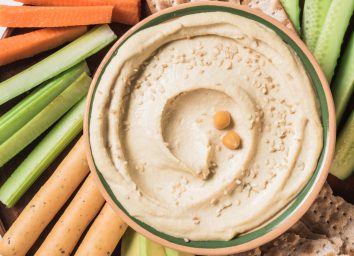What Happens to Your Body When You Eat Hummus
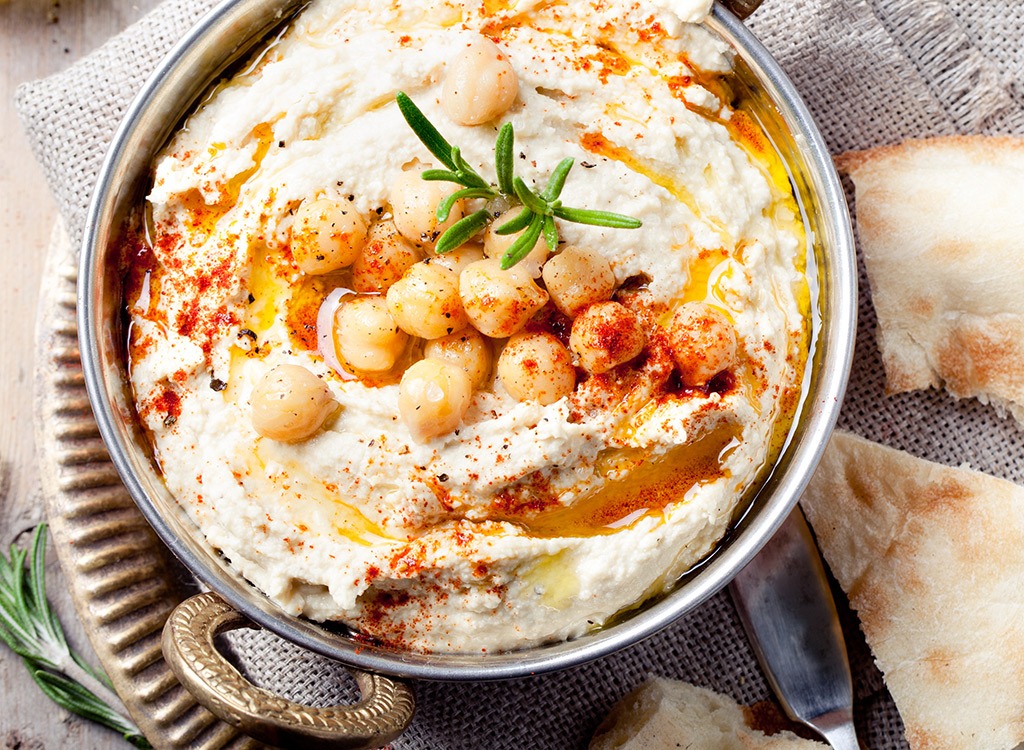
Once considered exotic fare only available at Middle Eastern markets, hummus has rapidly found a place in Americans’ hearts (and diets) over the last couple of decades. In fact, American’s eat hummus so much now that sales skyrocketed from $5 million annually in the ’90s to $725 million in 2016. How’s that for a success story?
If you’re among the 25% of American households who now stock hummus in the fridge, you probably eat it on a weekly, if not daily, basis. Ever wonder how all that chickpea-and-olive-oil dip is affecting your health? (Hint: It’s pretty much all good news.)
Here are six things that may happen to your body when you eat hummus regularly, and for even more healthy eating tips, be sure to check out our list of The 7 Healthiest Foods to Eat Right Now.
Your digestion may improve.
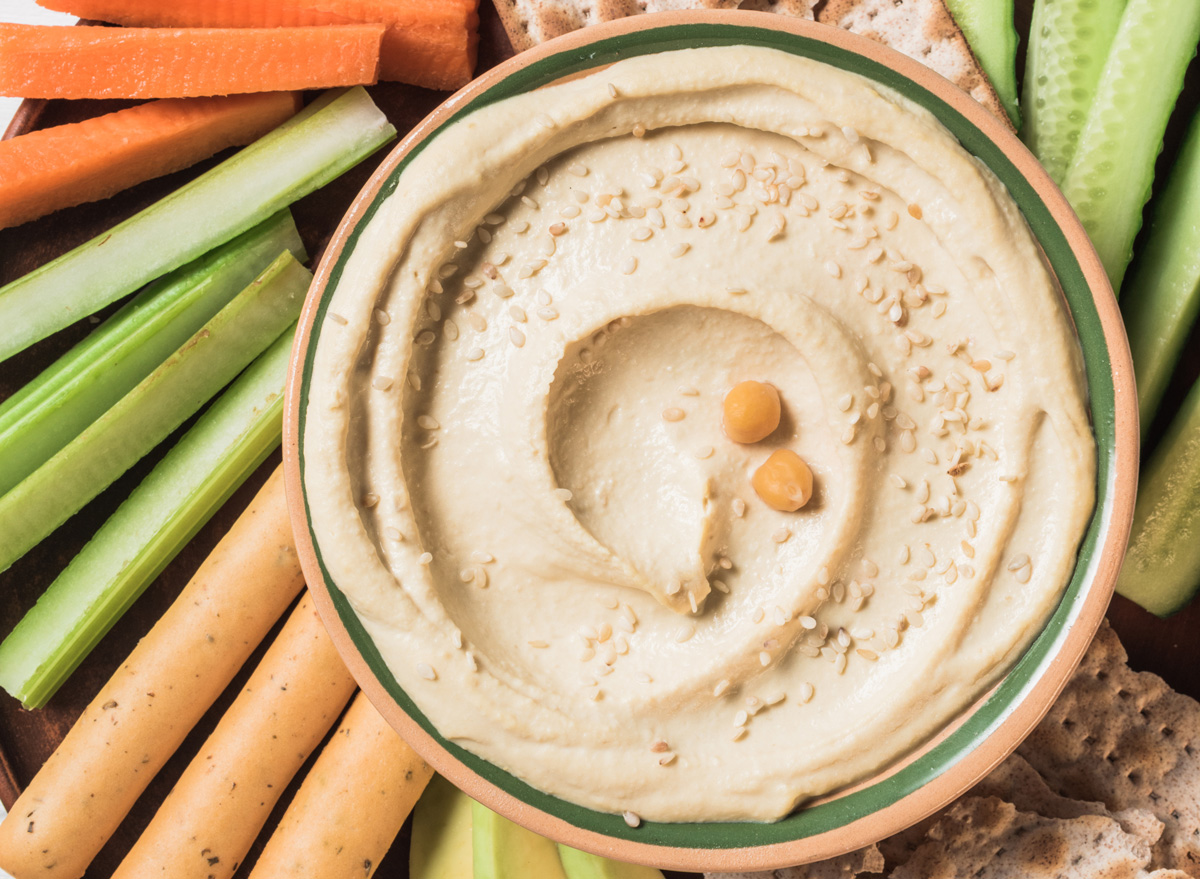
Hummus recipes may vary, with unique ingredients like pumpkin, artichoke, or even chocolate, but there’s one common denominator in almost every preparation: chickpeas. These little legumes are famous for their fiber content; a half-cup serving contains a whopping 11 grams of fiber.
Granted, you won’t get quite that much in a standard two-tablespoon serving of hummus, but adding fiber to your diet has innumerable benefits—especially for remedying digestion issues like constipation and diarrhea. One study found that consuming extra chickpeas for three weeks boosted the growth of beneficial intestinal bacteria, which are known to promote gut health.
Here’s One Surprising Side Effect of Eating More Fiber, According to Science.
You’ll build healthy bones.
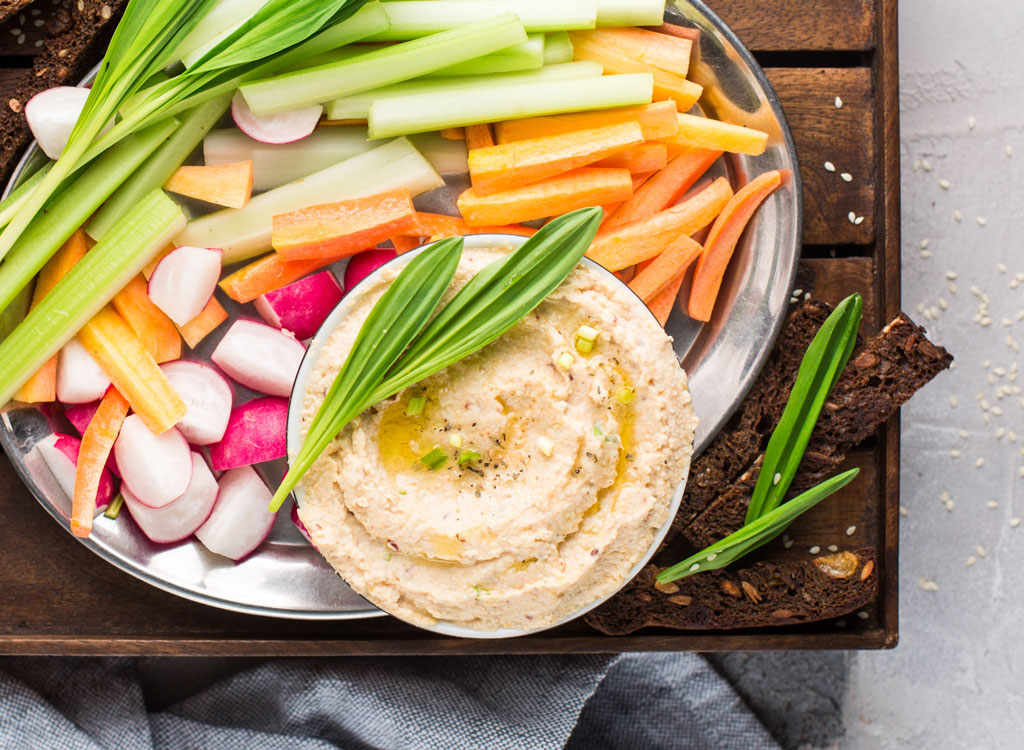
Chickpeas also contain an important micronutrient you might not think about a whole lot: manganese.
“Chickpeas have 0.9 milligrams of manganese in a half cup, which is close to 40% of your Daily Value for manganese,” says dietitian Carrie Gabriel, MS, RDN.
This mineral is essential for proper functioning of the nervous system and also helps maintain healthy bones and cartilage. Some research has linked low levels of manganese to osteoporosis.
“I wouldn’t expect hummus to give you ALL you need unless you are eating a lot of it, like a half cup,” says Gabriel—but every little bit helps.
Don’t miss our guide to the 7 best healthy hummus brands to buy!
You could reduce inflammation.
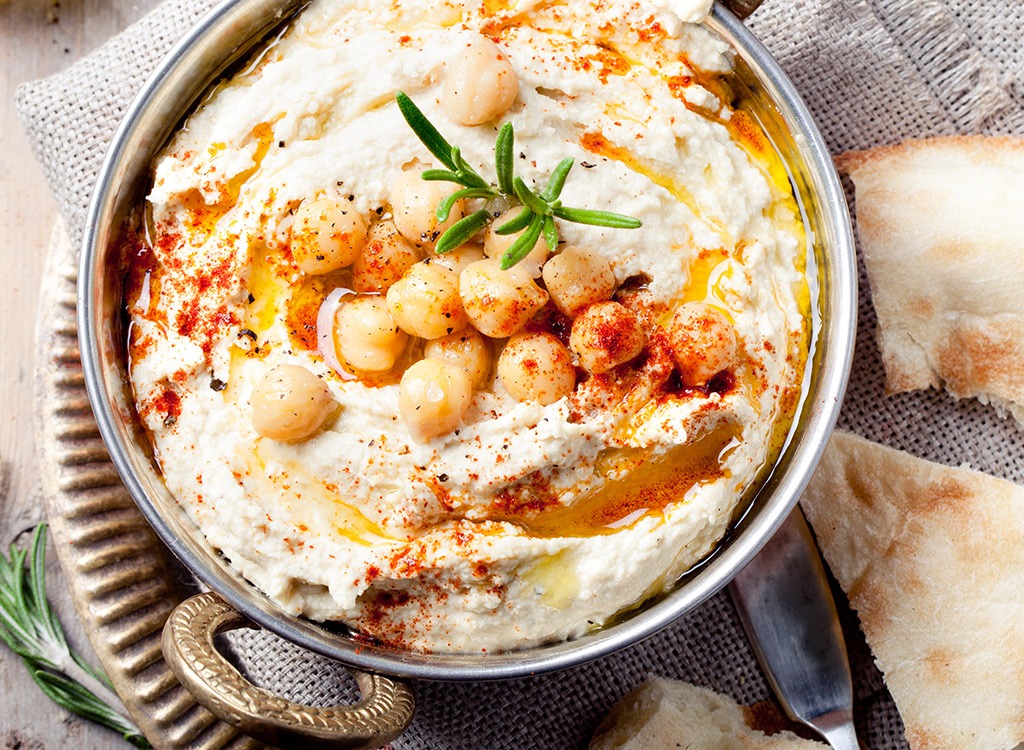
Hummus’ anti-inflammatory kick is two-fold. First, the fiber in its chickpea-tahini base is a known inflammation-buster. A study in the journal Nutrition, for example, found that a high-fiber diet was associated with lower markers of inflammation in the blood.
Its other power player, olive oil, brings plenty of anti-inflammatory properties of its own—primarily because of its antioxidant content. Compounds in virgin olive oil such as oleocanthal may have an anti-inflammatory capacity similar to ibuprofen.
For other anti-inflammatory foods, check out our 30 recommended choices.
You could reduce the risk of heart disease.
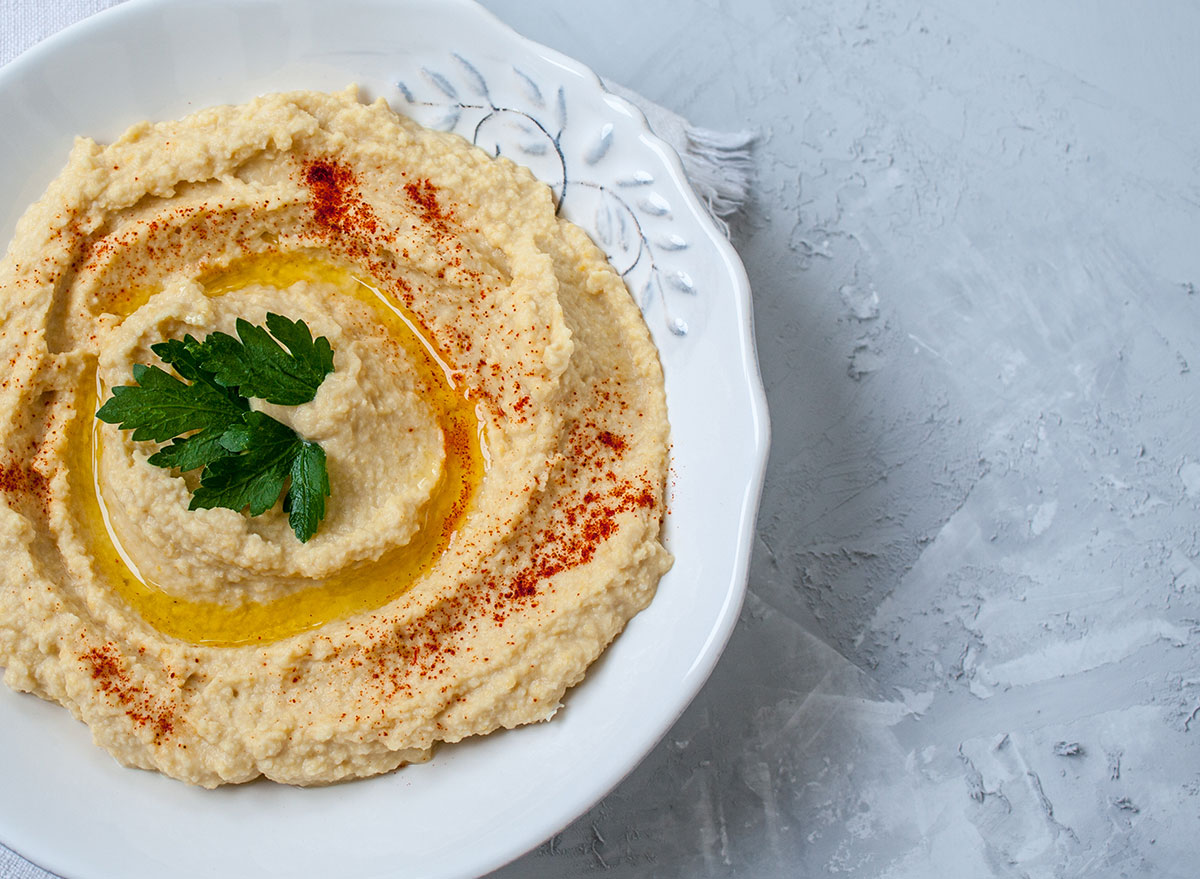
While hummus’ ingredients get to work on quelling inflammation on a systemic level, they can do so in more specific ways, too. One all-important organ they may help protect? Your heart.
According to a large study conducted by the American Heart Association, higher olive oil intake was definitively linked to lower risk of cardiovascular disease. Fiber, too, has a role to play in preventing heart disease. An abundance of research shows that eating more fiber lowers blood pressure and cholesterol, which can prevent harmful hardening of arteries.
You might lose weight.
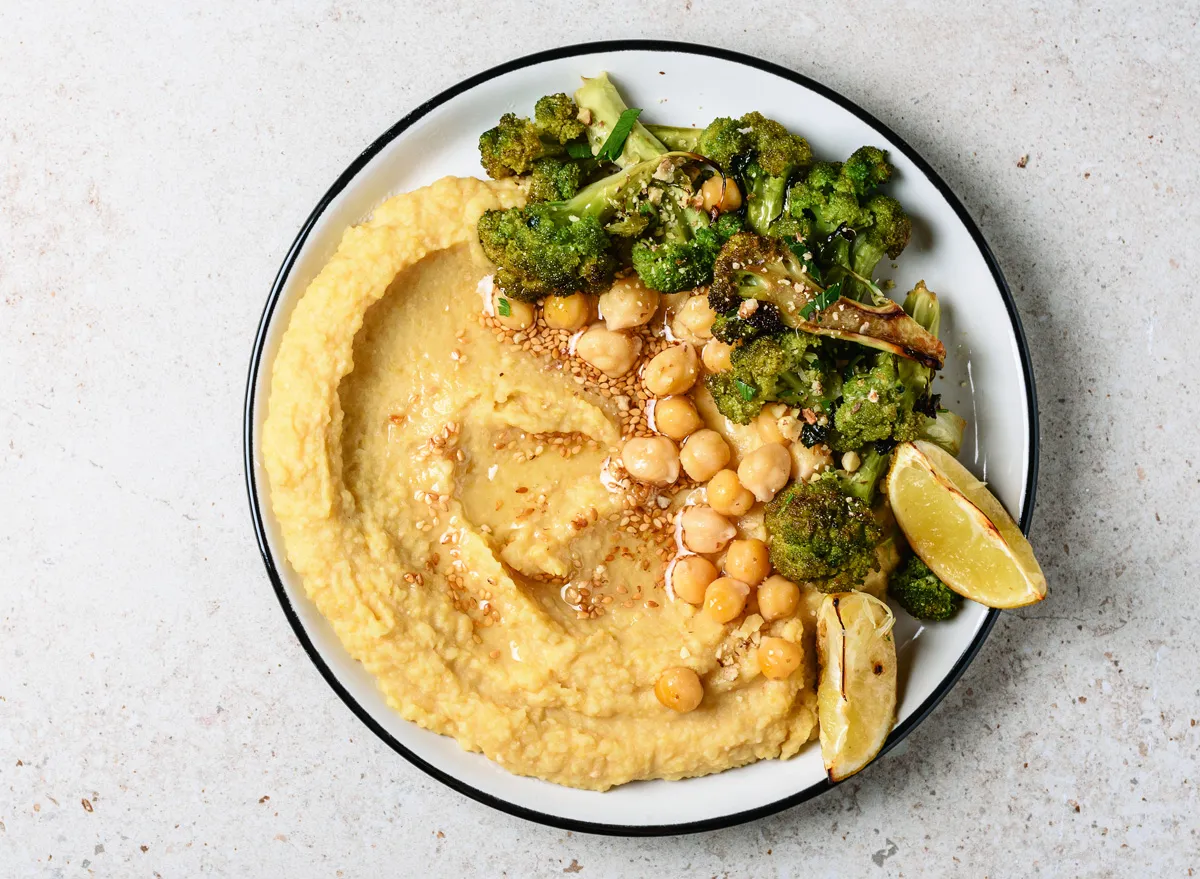
Successful weight loss isn’t about deprivation. Rather, it often comes down to making healthy (but still tasty!) swaps at meal and snack times. When you replace other, higher-calorie foods with hummus, you may see a difference on the scale over time. At 70 calories per two-tablespoon serving, the creamy chickpea spread is lower in calories (and higher in nutrients like fiber, manganese, copper, and magnesium) than other dips like Ranch dressing, dairy-based onion dip, or queso.
Need more convincing? A large systematic review from 2016 found that people who included so-called “pulses” like chickpeas, beans, and lentils in their diets experienced significant weight loss compared to those who didn’t.
You could gain weight if you overdo it.
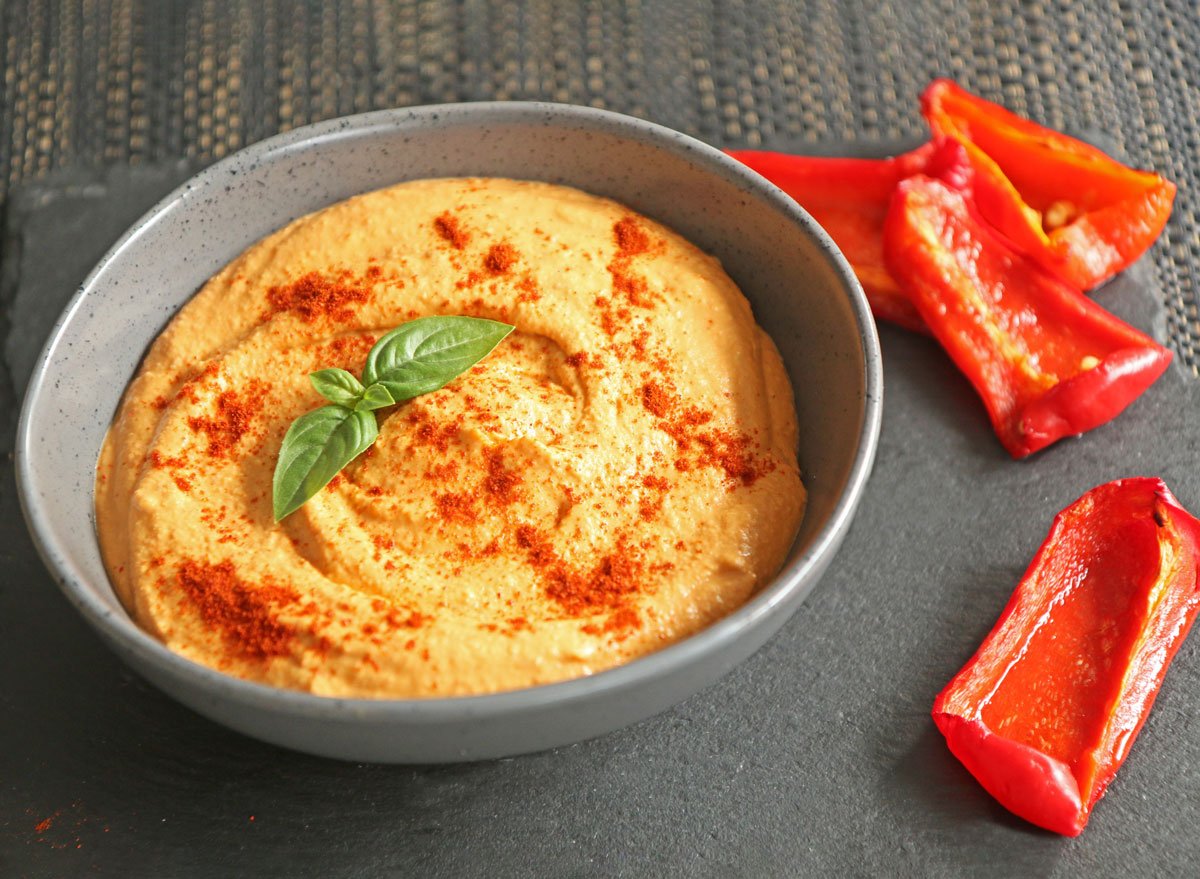
Hummus definitely makes a healthier dipping choice than plenty of other foods in the same category (lookin’ at you, bacon blue cheese dip)—but there’s a limit to how much is good for you in a single sitting.
“Too much of anything is never ideal,” says Gabriel. “While hummus is healthy, it still contains olive oil and often contains tahini, which is essentially sesame seed butter. Too much of any of that is going to rack up calories.”
For weight control, stick to the recommended two tablespoons to add a creamy, savory touch to carrots, crackers, and pitas.
Finally, check out the other signs you’re eating too much hummus, according to experts.

